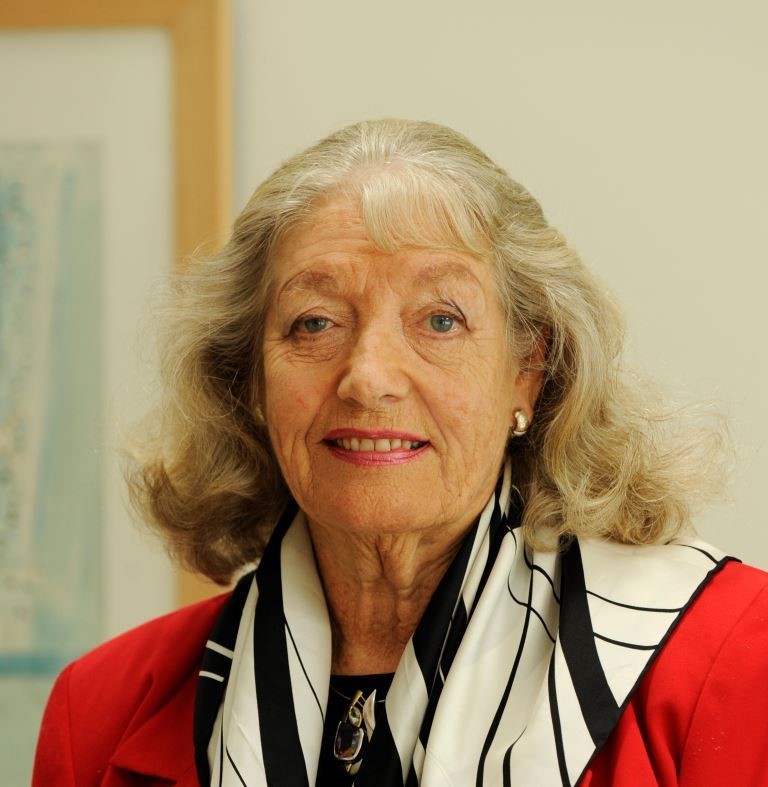April 10, 2019
Published in www.marketjournal.org

Hazel Henderson is the founder of Ethical Markets Media, LLC , a certified B-corporation, and the creator and co-executive Producer of its TV series. She is a world renowned futurist, evolutionary economist, a worldwide syndicated columnist, consultant on sustainable development, and author of The Axiom and Nautilus award-winning book Ethical Markets: Growing the Green Economy (2006) and eight other books. She co-edited, with Harlan Cleveland and Inge Kaul, The UN: Policy and Financing Alternatives, Elsevier Scientific, UK 1995 (US edition, 1996), and co-authored with Japanese Buddhist leader Daisaku Ikeda, Planetary Citizenship (2004). Henderson started Ethical Markets Media, LLC, to disseminate information on green investing, socially responsible investing, green business, green energy, business ethics news, environmentally friendly technology, good corporate citizenship and sustainable development by making available reports, articles, newsletters and video gathered from around the world.
A leading proponent of Earth Ethics, Henderson has been one of the critics to point out that the definitions of reality devised by natural and social scientists often pertain to the realities they are paid to study — raising questions as to who has funded these investigators and theoreticians, and why? Who deems certain research grants to be worthy of funding? Which questions crop up in the first place? Henderson believes that the various threats to peace, community security, and good environment have led us into a new era in which we are obliged to look for values, information, and know-how that we seemed to be able to do without until recent decades.
How ethical are markets today? Can a few bad actors destroy the planet?
Yes, we live in a world globalized on narrow economic textbooks which claim to be value free, but state that human nature is greedy, selfish and competitive! These theories also tell us that taking care of children, elders, sick and households , volunteering in the community is “un-economic”! In reality , these so-called “economic laws “ are bogus and mostly wrong, but they have institutionalized incentives that condone the most primitive kinds of human behaviors, described in many religious traditions as “the Seven Deadly Sins” (greed, selfishness, competition, jealously, envy, love of money and materialism)!

Thus businesses around the world and in many countries have been able to over-ride more cohesive communities and values and been allowed in economic accounting protocols to simply “externalize“ from their balance sheets social, environmental and human costs their operations frequently incur and burden future generations.
So a few bad actors, whether corporations manufacturing weapons of mass destruction or handguns, those promoting nuclear power, as well as militaristic governments, scientists, lone actors and terrorist groups … can indeed cause planetary-level destruction.
What must be done to accelerate the good?
To accelerate and incentivize the good in human societies, leaders at all levels and sectors need to promote and exemplify higher standards of behavior, based on “The Golden Rule” and teach higher levels of awareness of human interdependence. We humans now need to evolve as a species toward maturity and accept the scientific knowledge of how our home planet functions in relation to our “Mother Star” the Sun, and our interdependence with all other life forms in the biosphere. See my essay – The Politics of Connectivity.
What signs do you see that business is taking sustainability more seriously than before?
Due to public pressure, building up since the 20th century, people suffering the damage from corporate activities began to organize and demand reforms. Today, these protests have increased, forming global movements ( e.g: 350.org; Greenpeace, Friends of the Earth ,WWF and the global children’s strike led by Greta Thunberg in Sweden). Thousands of laws and international protocols convened by the United Nations, the EU and other international bodies, as well as national governments are forcing corporations to begin internalizing all those “externalities” in new holistic accounting models. Since the 1970s, socially responsible investors and asset managers have also pressured corporations with their screen and ESG investing models, divesting from fossil fuels and irresponsible companies stock, as well as engagement with management, naming and shaming publicity and damaging their brands and reputations. This is why we at Ethical Markets support your work with Philip Kotler, and why I was happy to give your Brand Activism book a positive review!
Elections have consequences. How does the politicization of policy hurt the future?
Politics is finally catching up with the current faulty model of economic globalization based on “externalities“ and GDP-measured growth. These public pressures led 195 members of the United Nations to ratify the new model for progress: the Sustainable Development Goals (SDGs) in 2015.
In 2019, in the USA, 90 members of the 116th Congress launched the Resolution for a GREEN NEW DEAL, which our decade of Green Transition Scoreboard ® research buttresses, that would transition the US economy from fossilized sectors to 100% renewable energy by 2030.
So-called “populist“ revolts against the narrow corporate and finance sector led globalization must be addressed by requiring corporations, governments and finance to internalize all the “externalities” within their accounting systems and adopt the “6 Forms of Capital” ( finance, built, intellectual, social , human and natural) promoted by the International Integrated Reporting Council. They must also repeal all subsidies to fossil fuels and fossilized sectors, while levying fines and taxes on all forms of pollution, including CO2 .
What do you feel the business community needs to do now?
The business community worldwide needs to reform all business models to conform with all these new full-spectrum accounting standards and phase out polluting methods and products, as we and the Biomimicry Instituteprescribe in our Principles of Ethical Biomimicry Finance which provides a one-stop knowledge system for asset managers and investors.
Thanks so much, Hazel!
Learn more by reading Creating Alternative Futures: The End of Economics (PDF) and Mapping the global transition to the solar age: From ‘economism’ to earth systems science, both by Hazel Henderson.
INTERVIEW by Christian Sarkar
http://www.marketingjournal.org/ethical-markets-hazel-henderson-interview/

